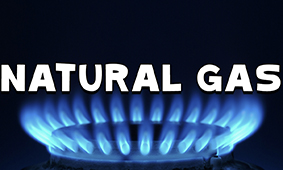
Sonatrach offers spot LNG cargoes as exports slow

Prices were discussed at $285-288/t fob South Korea today, after a deal for June-loading benzene was done at $289/t on the same basis. This is the lowest since February 2002.
Benzene prices have fallen by over 60pc since hitting $740-750/t fob South Korea in January, pressured by the spread of Covid-19 outside China. Prices had been supported by tight supply because of maintenance shutdowns at reformers in Asia-Pacific and the Middle East. Toluene disproportionation (TDP) units were also either idled or loaded down because of a margin squeeze in the fourth quarter of last year.
Benzene prices started coming under renewed pressure in early March as crude slumped because of a price war between Russia and Saudi Arabia. A wide open arbitrage to China added further pressure to benzene.
Declines were slowed in the first quarter by tight supply. But operating rates have been cut at paraxylene plants in April as producers try to balance the market, reducing supply of byproduct benzene as a result.
China's domestic market prices and state-controlled producer Sinopec's list price of benzene have been declining since February, but remain at a premium to both fob South Korea and cfr China prices on an import parity basis.
South Korea's benzene exports to China have been increasing. South Korea shipped 50,000t of benzene to China in February, and exports then rose by 45pc to more than 72,600t in March. Initial estimates suggest more than 56,000t of benzene loaded from South Korea to China on 1-20 April, suggesting a further increase in shipments this month.
China had been facing difficulty stockpiling benzene since November because of lower availability from South Korea, better netbacks to the US and a closed arbitrate to China. Inventory in east China remained steady at 80,000-90,000t in November and December, but then fell to a low of 60,000t in early February.
But stocks surged to more than 160,000t this week, because of the China price premium and viable arbitrage.
Benzene prices are coming under renewed pressure from the prospect of impending oversupply because of maintenance in Asia-Pacific and the Middle East. Supplies are rising but demand has been slammed by Covid-19 movement controls imposed across the world, excepting China. Crude volatility and economic weakness have led most buyers to stay away from the market in expectation of further falls in prices.
Chinese styrene monomer (SM) producers are raising production, but SM producers are still cutting production elsewhere in South Korea and southeast Asia. Phenol producers are also struggling to boost production despite strong demand for by-product acetone, in fear of flooding the market with phenol amid weak demand from bisphenol A and polycarbonates.
By Kate Lee


Trump weighs using $2 billion in CHIPS Act funding for critical minerals

Codelco cuts 2025 copper forecast after El Teniente mine collapse

Electra converts debt, launches $30M raise to jumpstart stalled cobalt refinery

Abcourt readies Sleeping Giant mill to pour first gold since 2014

Barrick’s Reko Diq in line for $410M ADB backing

Nevada army depot to serve as base for first US strategic minerals stockpile

Tailings could meet much of US critical mineral demand – study

Viridis unveils 200Mt initial reserve for Brazil rare earth project

SQM boosts lithium supply plans as prices flick higher

Energy Fuels soars on Vulcan Elements partnership

Northern Dynasty sticks to proposal in battle to lift Pebble mine veto

Giustra-backed mining firm teams up with informal miners in Colombia

Critical Metals signs agreement to supply rare earth to US government-funded facility

China extends rare earth controls to imported material

Galan Lithium proceeds with $13M financing for Argentina project

Silver price touches $39 as market weighs rate cut outlook

First Quantum drops plan to sell stakes in Zambia copper mines

Ivanhoe advances Kamoa dewatering plan, plans forecasts

Texas factory gives Chinese copper firm an edge in tariff war

Energy Fuels soars on Vulcan Elements partnership

Northern Dynasty sticks to proposal in battle to lift Pebble mine veto

Giustra-backed mining firm teams up with informal miners in Colombia

Critical Metals signs agreement to supply rare earth to US government-funded facility

China extends rare earth controls to imported material

Galan Lithium proceeds with $13M financing for Argentina project

Silver price touches $39 as market weighs rate cut outlook

First Quantum drops plan to sell stakes in Zambia copper mines

Ivanhoe advances Kamoa dewatering plan, plans forecasts

















